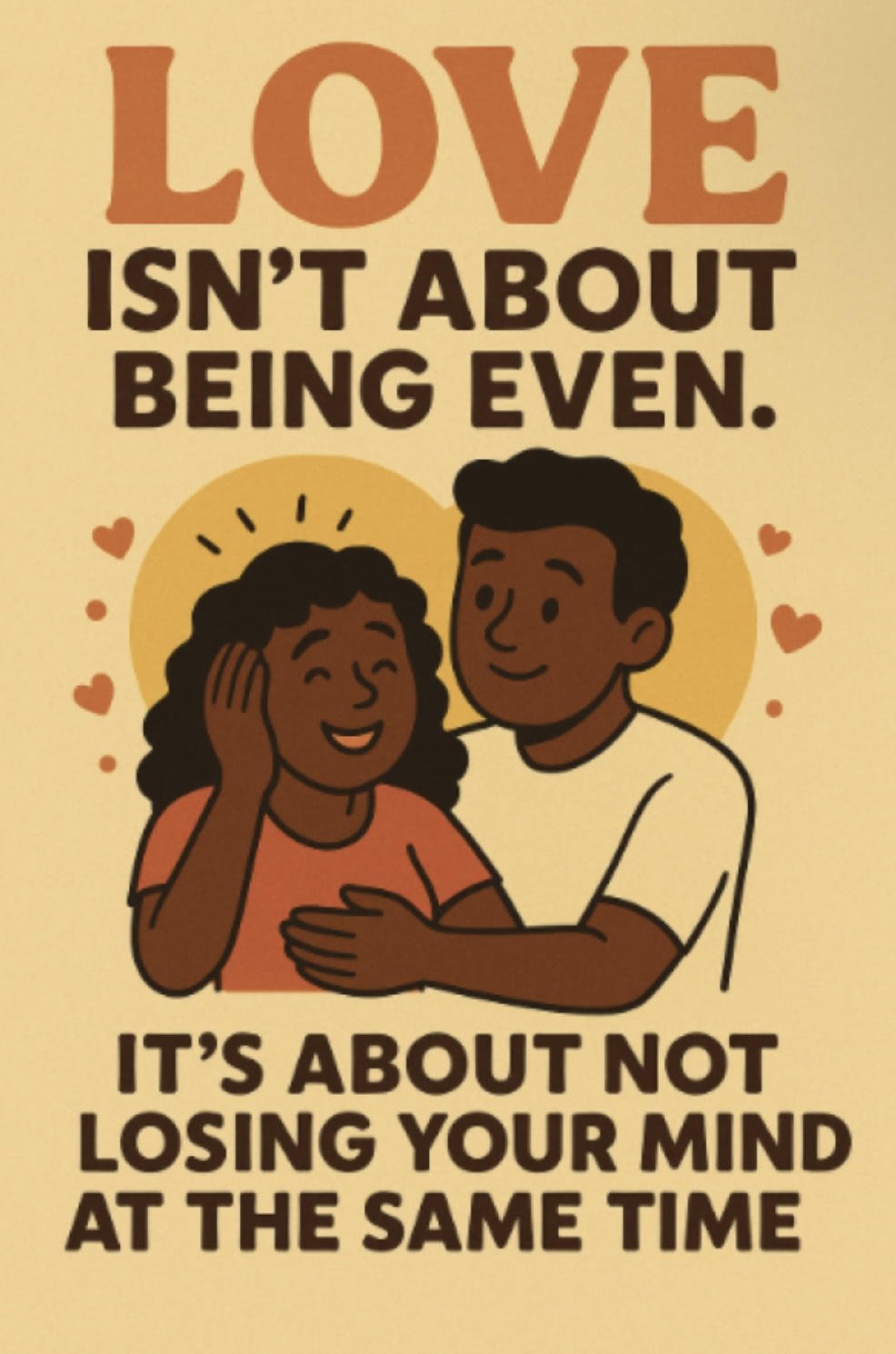
When people say “relationships should be 50/50,” it sounds fair, right? Equal effort, equal love, equal responsibility. But anyone who’s actually been in a relationship knows: life doesn’t work like that. Some days, it’s 60/40. Other days, it’s 80/20. And if we’re being honest, there are moments when one person is holding up 100% of the emotional weight while the other is simply surviving. That’s real life. That’s real love.
Let’s talk about the 80/20 rule — not the productivity version that talks about how 80% of results come from 20% of effort — but how this principle can help us better understand and manage emotional labor, support, and expectations in relationships.
💡 What the 80/20 Rule Really Looks Like in Relationships
The 80/20 rule in relationships means this: sometimes, one partner will be giving more than the other. Not because they love more, not because the other person isn’t trying, but because humans are not machines — we all go through ups and downs.
Think about it:
- One partner might be going through grief, burnout, or a mental health struggle.
- The other might be in a season of strength, offering more patience, care, or energy.
In a healthy relationship, this imbalance is temporary, and it shifts back and forth over time. Love becomes about giving each other the grace to not always be at your best.
💔 Why 50/50 Sounds Nice But Often Fails
The idea of a 50/50 relationship assumes that both people will always have the same capacity to give. But what happens when:
- One of you loses a job?
- A parent gets sick?
- One of you is going through anxiety or depression?
- Trying to split everything perfectly down the middle in times like these can lead to resentment, guilt, or shame. Instead of being a team, you become scorekeepers. Relationships aren’t about keeping tallies — they’re about trusting the give and take will balance out over time.
🧠 How to Navigate the 80/20 Reality- Here are some practical tips to manage when you or your partner is stuck in the 20% and needs a little extra support:
- 1. Check In, Don’t Check Out
- If you feel like you’re giving more than you’re getting, talk about it. Not with blame, but with curiosity and care. Ask, “Hey, I’ve noticed I’ve been carrying a lot lately. Is everything okay?” Be open to hearing where your partner is emotionally.
- 2. Avoid Scorekeeping
- Instead of thinking in numbers (“I did this many chores,” “I initiated all the dates”), focus on patterns. Is the imbalance chronic, or just part of a temporary season?
- 3. Shift the Focus from Fair to Flexible
- Fair doesn’t always mean equal — it means being adaptable. Maybe your partner can’t contribute as much emotionally right now, but they show up in other ways (like running errands or being physically present). Flexibility is the secret ingredient to long-term connection.
- 4. Recognize Burnout
- If you’re constantly stuck in the 80%, it’s a sign to reassess the relationship’s foundation. Healthy relationships ebb and flow — they don’t drain one person dry. Long-term imbalance is a red flag, not a relationship norm.
- 5. Celebrate the 20% Moments Too
- When your partner is able to show up — even if it’s small — acknowledge it. Validation and appreciation go a long way in helping someone rebuild their ability to give more.
🌱 The Bottom Line: Love Isn’t a Math Equation
Real relationships aren’t about dividing everything equally every single day. They’re about showing up, shifting when needed, and trusting the flow. When love is rooted in compassion, flexibility, and mutual respect, the numbers don’t have to be perfect — the connection speaks for itself.
So if you find yourself in a season where you’re giving more — take a breath. Ask yourself: Is this a moment, or is this a pattern? Am I being taken for granted, or am I just being leaned on for now?
Relationships aren’t about getting it “even.” They’re about getting through it together. And sometimes, that means being someone’s 80% — knowing that when the tables turn, they’ll be yours.
Written by: Sophie Limbourg
